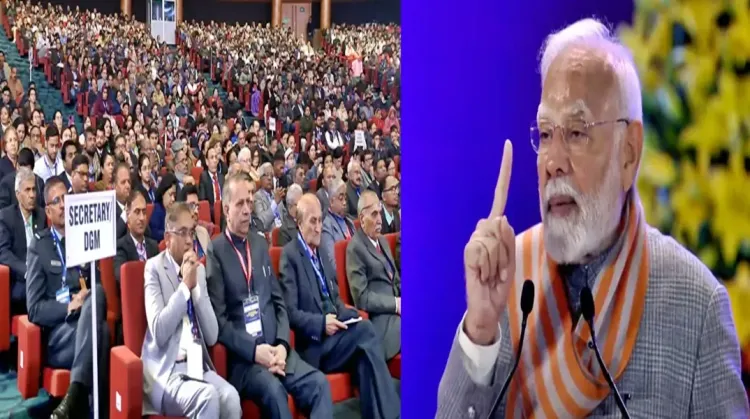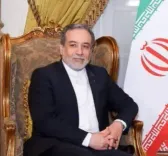IMD's 150-Year Legacy as a Beacon of India's Scientific Progress: PM Modi

Synopsis
Key Takeaways
- IMD's 150-Year Celebration
- Launch of Mission Mausam
- Technological Innovations in Weather Forecasting
- Support for Farmers and Fishermen
- IMD's Role in Disaster Management
New Delhi, Jan 14 (NationPress) Prime Minister Narendra Modi on Tuesday praised the India Meteorological Department (IMD) as a representation of India's scientific evolution, commending its extensive contributions over the last 150 years.
During the 150th Foundation Day celebrations of IMD at Bharat Mandapam in New Delhi, the Prime Minister emphasized the department's technological advancements and its crucial role in assisting millions of Indians.
In celebration of this milestone, PM Modi introduced 'Mission Mausam', an ambitious plan aimed at making India a 'weather-ready and climate-smart nation.'
This initiative will utilize cutting-edge weather monitoring technologies, high-resolution atmospheric observation systems, next-gen radars, satellites, and high-performance computing.
Additionally, it aims to improve the comprehension of weather and climate processes while providing actionable air quality data to support long-term weather management strategies.
"These 150 years of the IMD are not merely the tale of an institution but also a proud chapter in India’s modern scientific and technological narrative. Throughout the years, IMD has aided millions of Indians, becoming a beacon of India's scientific advancement," stated PM Modi.
He mentioned that the IMD had organized a National Meteorological Olympiad, engaging thousands of students and fostering their interest in meteorology.
Reflecting on the department's establishment on January 15, 1875, near Makar Sankranti, PM Modi connected it to the festival's cultural importance.
"Makar Sankranti signifies the Sun's transition from Sagittarius to Capricorn, marking Uttarayan, a change that heralds sunlight and the harvest season. This festival has always been dear to me," he expressed, noting that IMD's foundation during this period highlights its lasting significance.
PM Modi commended the IMD's considerable technological progress in the past decade, citing innovations like Doppler weather radars, automatic weather stations, runway weather monitoring systems, and district-specific rainfall monitoring stations.
"For India to be prepared for every weather condition and to evolve into a climate-smart nation, we have initiated 'Mission Mausam', focusing on sustainability and future preparedness," he remarked.
The Prime Minister underscored the department's role in enhancing the quality of life for ordinary citizens, especially farmers and fishermen.
"Weather updates are now available on phones and WhatsApp in regional languages. Over 50 percent of farmers and livestock keepers benefit from these services," he pointed out.
He also stressed the IMD's contributions to disaster management, including advance alerts for lightning and guidance for fishermen to evade hazardous sea conditions.
PM Modi praised the IMD's role in bolstering disaster management, benefiting both India and its neighboring countries.
"Our flash flood guidance system now supports Nepal, Bhutan, Bangladesh, and Sri Lanka. Whenever a disaster occurs in neighboring nations, India is the first to extend aid, strengthening global trust in us," he stated.
The Prime Minister released the IMD Vision-2047 document, detailing strategies for weather forecasting, climate change mitigation, and resilience building.
He also introduced a commemorative postal stamp, coin, and coffee table book on this occasion.
An exhibition displaying IMD's innovations and disaster forecasting technologies for tsunamis, cyclones, and earthquakes was also organized.
To celebrate IMD's 150th Foundation Day, a series of events, workshops, and activities have been planned to showcase its achievements and its role in making India climate-resilient.








